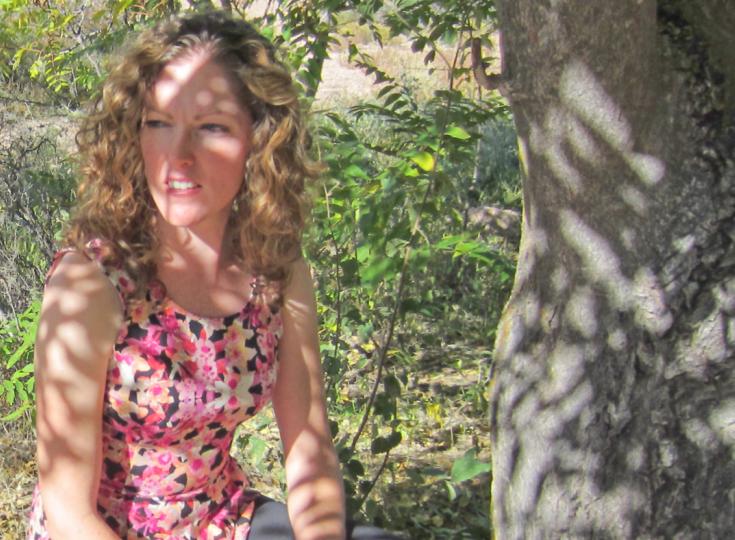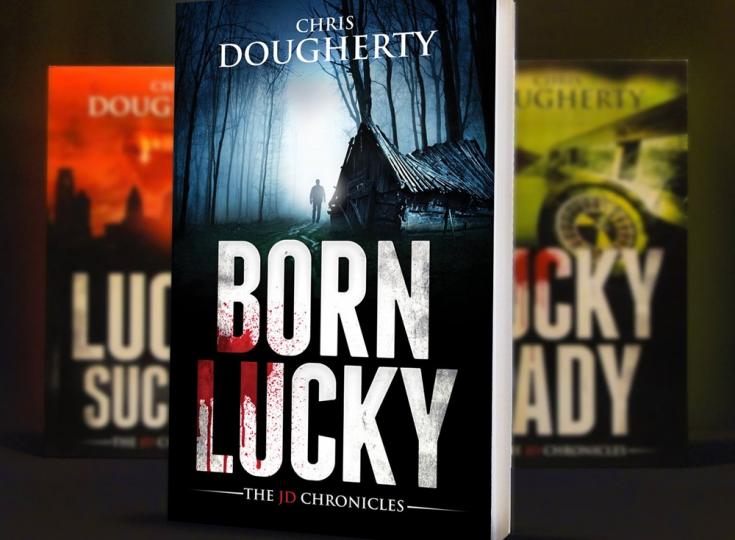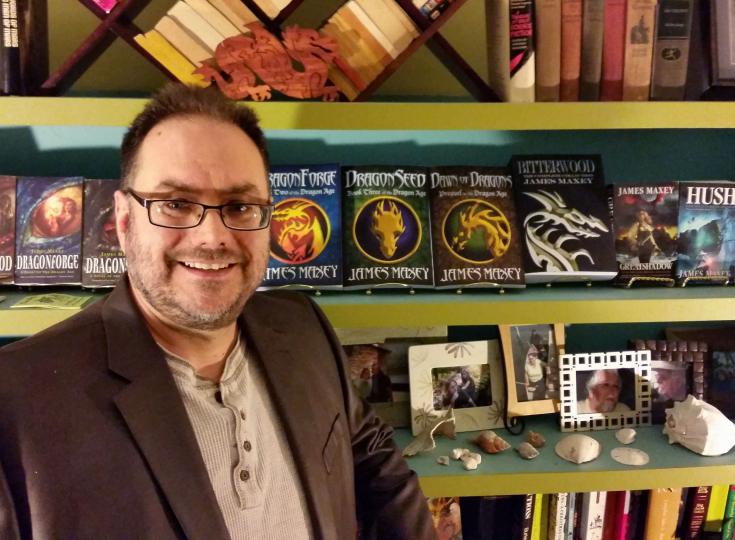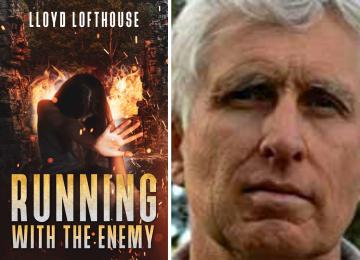Gary F. Bengier - A Captivating and Fast-Paced Futuristic Love Story
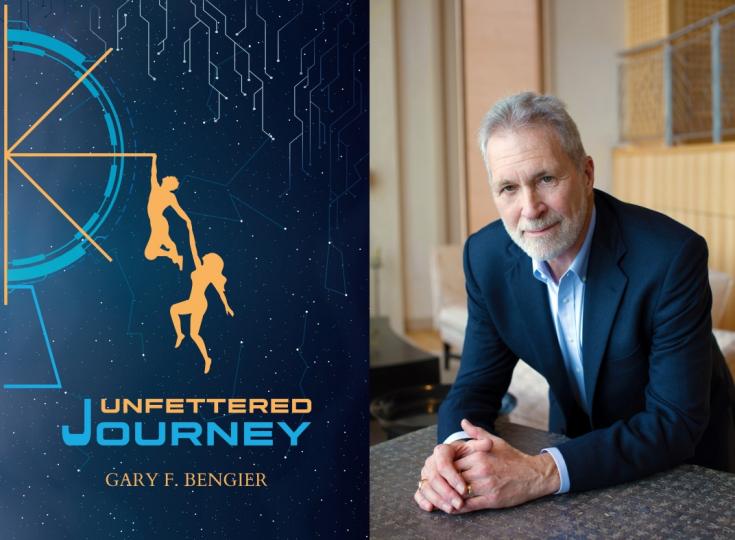
We all have many journeys. Gary’s began in a small Midwest town, where he could play unfettered in the woods, finding an early love for nature and learning self-reliance. The space program and the night skies hooked him on astronomy. After finishing college, the wide world beckoned, and his fascination with science drew him to California to participate in the booming tech industry. Now he still stares upward, wondering what it all is about. As our Author of the Day, he tells us all about his book, Unfettered Journey, which was chosen as Book of the Month by BookClubz.com (serving 19,000+ book clubs) in November. You might want to sit back with a "Bessie" vodka cocktail (see recipe here: https://garyfbengier.com/bookclub) to read this interview!
Please give us a short introduction to what Unfettered Journey is about.
Unfettered Journey is the story of Joe Denkensmith, an AI scientist who seeks to create true robot consciousness. He leaves everything behind to find answers. But a mysterious woman on a personal mission interrupts his search. Fighting unjust forces, Joe is swept into an evil plot that neither can elude. Their struggles against machines, men, and nature test the resilience of the human spirit. Unfettered Journey is an adventure and love story, with a philosophical edge.
Why did you want to write a cross-genre novel set in the near future?
I’ve intended to write a universal story of the human experience, and of human resilience. So that leaves open many time periods in which to place the story. I chose the near future, the year 2161, because that allowed me to explore several important sub-themes, including social justice, and to portray a more realistic version of our likely future.
I think that science fiction has begun to do a disservice. It is hard to predict the future. But then many do not try with any accuracy or respect for the laws of physics. I’ve taken a hard science view. What will it really look like? There will not be dragons in the future, except of our own making. I believe that together we can better imagine it. If we do that well, then we can create it. We can create that better future, one worth living in, if not for ourselves, then for future humanity. We owe that to them.
Readers say this book is "Hunger Games meets West World" - was this intentional?
That juxtaposition points to one possible outcome that could be more than likely, so it is in part a warning, of dystopian aspects infusing a Utopian future. It seems inevitable to me that humans will perfect AI and robotic technology to the point that our machines will be walking around among us, in the not-too-distant future. In that likely future we will have lots of stuff, but lots less productive work to occupy our time. I do not believe that will be in a decade or two, because of all the required ancillary technologies, and the social infrastructure, will take time (much like the automobile took roughly a century to reach its modern state). But it will happen. That is the “West World” part of the equation.
Will these robots be conscious? That is another conceit of much science fiction that I debate, and the question leads to a philosophical discussion about the nature of our human consciousness.
Second, to “The Hunger Games.” Humans are evolved apes, and we carry with us our animal nature, which informs how we treat one another. I think that humankind will struggle for centuries to find answers to moral questions of social justice, equality, and how we as a species can better work together. The near future will not be a Utopia, even as our robots may do much of our work for us. What kind of world do those two threads likely lead to? That is a central question for Unfettered Journey.
Why did you decide to include a love story in between all the thrills and action?
On his journey Joe finds love. Unfettered Journey is a love story. It is a story about two people finding purpose together. That love story informs the other questions about social justice, how we should treat one another, and what really is central to human needs. Besides, I think readers will love my powerful women characters, and the relationships developed among the characters.
What inspired the AI scientist seeking to create robot consciousness?
There is a conceit in science fiction today that robots will quickly become conscious, leading to such storylines as found in Terminator, when robots then destroy us. But any exploration of philosophy of mind suggests that we don’t understand our own consciousness, so creating it in machines is a leap; and I do not believe we need fear its instantaneous malevolent emergence. In Unfettered Journey, humans are worried about prosaic issues – how to improve robots so they won’t accidentally injure us, and more immediately, how to build them so they just aren’t annoying. Perhaps adding some sort of consciousness will mitigate those issues. That is the context for the AI scientist Joe to seek to create robot consciousness. But he realizes that he must first understand his own.

Tell us more about Joe Denkensmith. What makes him so special?
In many ways, Joe Denkensmith is just an average guy. He spends a lot of time in his own head, trying to avoid failure, trying to find some purpose for his existence. He is drawn out of his head and into the world by the mysterious woman that he meets on his journey. What is special about Joe is that you experience the world from his unique point of view. In that way, you experience his consciousness, and perhaps think more deeply about your own.
You grew up in a small Midwest town. How has this influenced your writing?
Many readers will like my “richly developed characters that you care for and root for,” as a recent Amazon reviewer wrote. Perhaps drawing such characters is influenced by the Midwest values that tend to look for the best in people. Even as this near future has some dystopian aspects, I think readers will find on balance an optimistic vision, and that hope for the future too no doubt comes from my Midwest roots.
Besides writing, what other secret skills do you have?
Perhaps curiosity has led to development of lots of hobbies, if not skills. I enjoy finding some topic where I can “double my knowledge.” (Hint: Begin with something you know little about.) That has led me to learn lots of new things. And that skill has been helpful when writing Unfettered Journey, which covers many topics – from space exploration, to AI technology, to philosophy, to economics, to survival skills. So as examples: years ago I earned my pilot’s license; I’ve tried surfing and sailing; practiced being an astronaut at Space Camp (with the shuttle mockup in Huntsville, Alabama); learned enough wilderness and outdoor skills to through-hike the John Muir Trail; and climbed many mountains around the world.
The book also addresses some deep issues - asking social, spiritual, and philosophical questions that linger with readers. Why did you take this approach?
We tend to live our lives minute by minute, constantly distracted by our technology, by social media, and busy schedules. Few people today find the time to ask themselves: What is all this activity really about? I think that as our technologies become more embedded in our lives, it is ever more difficult to step back, to return to some more basic living, and to ask these questions. Second, our science can divorce us from contemplation of such questions. In Unfettered Journey, I ask: Can we square a scientific perspective with any spiritual system? Those are key questions raised by my multi-layered book.
What did you have the most fun with when creating this story?
For perspective, let me mention both the good and the bad parts of writing. You are not a writer until you actually write. Like exercise, writing is often more enjoyable in the abstract. The secret really is “butt in the seat,” so every writer needs to work at their art. I like to plan, so I outlined the novel—only a skeleton at first, then with more detail as the story became clearer to me. Then I roughed out the scenes. Then I set weekly, monthly, and quarterly goals for scene writing. The progress against those concrete numbers was motivating. I liked to watch my number of words grow and the number of unwritten scenes diminish. Along the way, my characters began to wake me up at night, to whisper in my ear (“No, I won’t do that…”). That’s when the writing truly became a lot of fun. At least for me, the writing discipline awakened the unconscious voices of my characters and allowed them to tell their stories. What are you working on right now?
I’ve volunteered for the difficult work of an Indie author, not dependent on anyone marketing platform, trying to get the word out about a unique novel that doesn’t fit into some neat genre. It is the book I wanted to write, and like Joe, I’m not afraid to be rebellious. I’m gratified by the readers who have been moved by the book, and some who have changed their thinking and perhaps their lives as a result, and that is motivating to persevere with this marathon. Now I’m focused on getting the word out around the world, as I launch translations in seven languages, beginning with my French edition next month.
Where can our readers discover more of your work or interact with you?
Please find more about the book and its backstory at my author website, https://garyfbengier.com. There you can find links to the book in all formats (including audiobook, paperback, hardbound, and epub), and media coverage, book video trailers, and videos describing the book and its creation.
